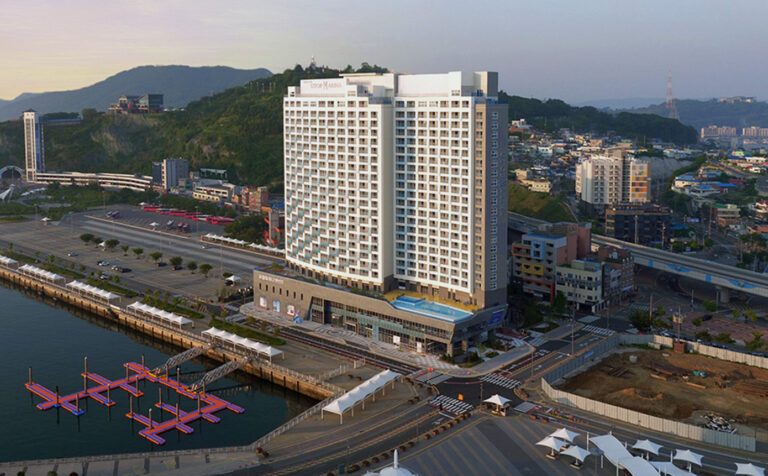The concept of residential lodging establishments emerged in the mid-2000s when some officetels operated as lodging establishments without registering as such under the ‘Public Health Control Act,’ leading to controversy. At that time, lodging establishments with cooking facilities already existed in the form of family hotels and resort condos. However, since designating the building use as ‘lodging properties’ and registering as tourist lodging pursuant to the ‘Tourism Promotion Act’ would have imposed additional regulations regarding development and transaction, a new business model was devised to circumvent these requirements.
Family hotels and resort condos were primarily located in resort areas and targeted family tourists for leisure purposes. In contrast, there was insufficient supply of lodging establishments in urban areas for consumers needing long-term stays for business purposes. Thus, the market environment justified the emergence of urban long-term stay lodging establishments. Consequently, officetels with similar facilities and abundant supply began to be used for lodging business, but without specific regulation. This led to prolonged disputes, with the hotel industry pushing back, culminating in the designation of ‘residential lodging’ as a distinct category in 2012 under the ‘Public Health Control Act’ and the establishment of detailed regulations.
The ‘Enforcement Regulation of Public Health Control Act’ Appendix 1 stipulates the following facility standards for residential lodging establishments:
- Residential lodging establishments must have cooking facilities and ventilation facilities or windows. If cooking facilities are installed indoors, fixed cooking facilities must be installed in each room or in a communal cooking area.
- Residential lodging establishments must have a bathroom or shower room in each room. However, a hostel business as prescribed under subparagraph M of item 2 of paragraph 1 of Article 2 of the Enforcement Decree of the Tourism Promotion Act may install shared bathrooms or shower rooms.
- A lodging business operated in part of a building must meet one of the following requirements: (i) the guest rooms are arranged on an independent floor; (ii) the number of guest rooms is 30 or more; or (iii) the floor area of the business premises is at least one-third of the building’s total gross floor area. However, taking into account regional conditions, metropolitan cities, special metropolitan cities, special self-governing cities, provinces, and special self-governing provinces may, by ordinance, relax and prescribe the standards for the number of guest rooms and floor area.
Following the ‘Public Health Control Act,’ the Ministry of Land, Infrastructure, and Transport included ‘residential lodging properties’ in the ‘Enforcement Decree of Building Act’ Appendix 1 in 2013 and implemented the ‘Residential Lodging Property Building Standards’ in 2021 to specify detailed standards for the facilities. Article 3 of the ‘Residential Lodging Property Building Standards’ stipulates the following:
- Conformity with the Residential Lodging Property Standards specified in Appendix 1 of the ‘Enforcement Regulation of Public Health Control Act.’
- Installation of a front desk and lobby (including public restrooms).
- Installation of at least one linen room (for storing bedding, sheets, towels, etc.) per 30 rooms.
- Installation of food and beverage facilities (e.g., restaurants) for tourists.
- Introduction of a room management (control) system capable of checking room access control and security, to be included in the design documents.
- If balconies are installed in each section, they must be installed in an open form exposed to the outside air, and if balconies are installed, safety facilities to prevent falls must be installed according to Article 17, Paragraph 4 of the ‘Regulations on the Standards for Fire and Fire Protection Structures of Buildings.’
Residential lodging properties, rooted in officetels, adopted the officetel practice of separating and selling fractional ownership. This was a prevailing business model for real estate developers at the time. From the beginning, residential lodging properties were positioned as ‘fractional ownership hotels,’ but without the stable operation structure similar to US condo hotels, leading to inherent problems from the outset.
Residential lodging is a type of lodging establishment with cooking facilities, similar to family hotels and resort condos under the ‘Tourism Promotion Act.’ As such, family hotels, resort condos, and residential lodgings may be in direct competition.
The differences are that residential lodgings can be sold fractional pursuant to the ‘Act on the Sale of Building Units,” and resort condos can be as well pursuant to Article 24 of the ‘Enforcement Decree of Tourism Promotion Act,’ whereas family hotels cannot be sold fractional. Additionally, family hotels and resort condos can recruit members according to Article 24 of the Enforcement Decree of Tourism Promotion Act, while residential lodgings cannot. Thus, residential lodgings could more easily secure development funds through unit sales, but it faces higher difficulty in securing operational funds and maintaining quality.


